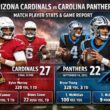| MAER ROSHAN: I know there are hundreds of sources you search through each day. How do you decide which to feature?
DRUDGE: I just post the things I find interesting. I can’t remember the last time I actually read a full-blown article, you know. Usually I just scan the first two paragraphs and the last two paragraphs. I’ve had to become a speed-reader simply to feed this great big hole. I’ve got five computer screens lined up, and thousands of news stories to go through on any given day. It comes down to an editorial decision that I make every second that I’m sitting in front of the monitors. If you’re not careful you can fill up people’s minds with stories that go nowhere. PAGLIA: You have an improv quality—it’s like flying by the seat of your pants as the storm of news is raging all around you. You’re just –grabbing at things as they fly by. DRUDGE: I don’t think it differs much from the editorial meetings that newspapers or Dan Rather and Peter Jennings have. However, I think, oddly enough, my choices, and the variety of sources I have, are wider and more varied than theirs are. There’s a reason I know that Prince William wants to move to America long before Barbara Walters does. I don’t think a lot of the decision makers are even online; the media’s old guard is in fact really old. What scares me is I’ve got so many smart people reading it: the congressional leaders, the executive branch leaders, the judicial branch leaders, the Hollywood moguls. It’s frightening, because it’s easy to make mistakes on the Internet. You can make up anything about anybody and send it everywhere, all with a hit of the send button. PAGLIA: Your opponents say that you circulate rumors without substantiating them, then withdraw them after the harm has been done. DRUDGE: I’m not even sure at what point rumors officially become news, Camille. The New York Times just caught a reporter making a great many outright |
falsehoods over a period of years, so I’m not the only one making mistakes. There have always been questions about journalism and rumor, where one ends and the other begins. But I don’t know who it is that officially rings the bell and says, “Now it can be considered news.”
ROSHAN: You’ve mentioned as your role models Louella Parsons, Walter Winchell, and William Randolph Hearst—two gossip columnists and a notorious yellow journalist. Do you see yourself more as a gossip columnist or a news reporter and gatherer? DRUDGE: I’ll let the reader decide that. That’s one of those old-school questions that I’ve answered too many times. It certainly would not be fresh enough for the pages of the new magazine Radar. [Laughter] PAGLIA: In the past you’ve denied that you’re a journalist per se. DRUDGE: Meaning graduated with degree, appeared on Charlie Rose. PAGLIA: You don’t do firsthand reporting. That’s not your function. DRUDGE: No, I disagree with that sharply. I know that many people, including Lucianne Goldberg, claim I have never done an original report in my life. Well, how did I know to call her on that night I broke the news about Michael Isikoff’s Lewinsky story [in Newsweek]? With all the media sources now available to modern consumers, original reporting on someone else’s reporting will be more and more valuable. PAGLIA: There’s something retro about your persona. It’s like the pre-World War II generation of reporters—those unpretentious, working-class guys who hung around saloons and used rough language. Now they’ve all been replaced with these effete Ivy League elitists who swarm over the current media. Nerds—utterly dull and insipid. |
DRUDGE: But you look at these tanned, blow-dried gym bunnies like Brian Williams, NBC’s next anchor—all they do is read off a teleprompter, and no one has a problem calling them journalists. In the end I really don’t care what I’m called, as long as it’s not blogger. As Roger Ailes told me early on, you don’t need a license to report. You need a license to do hair.
PAGLIA: I think a lot of people who dismiss you as a gossip columnist are dismissive about the entertainment industry in general. There’s a snobbery in the media that says that serious reporters cover political news, while those who cover celebrities are dismissed as gossips. ROSHAN: When Sidney Blumenthal sued you for libel, for claiming that he beat his wife, your lawyer defended you by saying that at worst your report was an accurate report of an inaccurate rumor. Would that qualify as gossip or news? DRUDGE: Hmm… When I wrote that story I certainly thought it was news. But, you know, again, I’ll leave you to decide what it is. I don’t know what is gained by putting different labels on me. As far as I’m concerned, if American Idol gets 25 million viewers, that to me is as important as the latest bill passed in Washington. That to me is news—and it’s also news to most Americans in this new century. ROSHAN: Labels aside, doesn’t your willingness to report inaccurate rumors separate the Drudge Report from, say, the New York Times? DRUDGE: Oh, of course not! Maureen Dowd had no problem picking up Kitty Kelley’s dubious story about how Frank Sinatra slipped into the White House to carry on with Nancy Reagan. This made it to page one of the Old Gray Lady. Was that accurate reporting of an inaccurate rumor, or gossip? You also have to remember, Maer, how Blumenthal’s suit ended. He settled. He’s making a big stink in his book about how he couldn’t con–tinue his suit against me because he ran out of money. Well, he had enough money to pay off my lawyers to stop harassing him on a case he had filed. |



